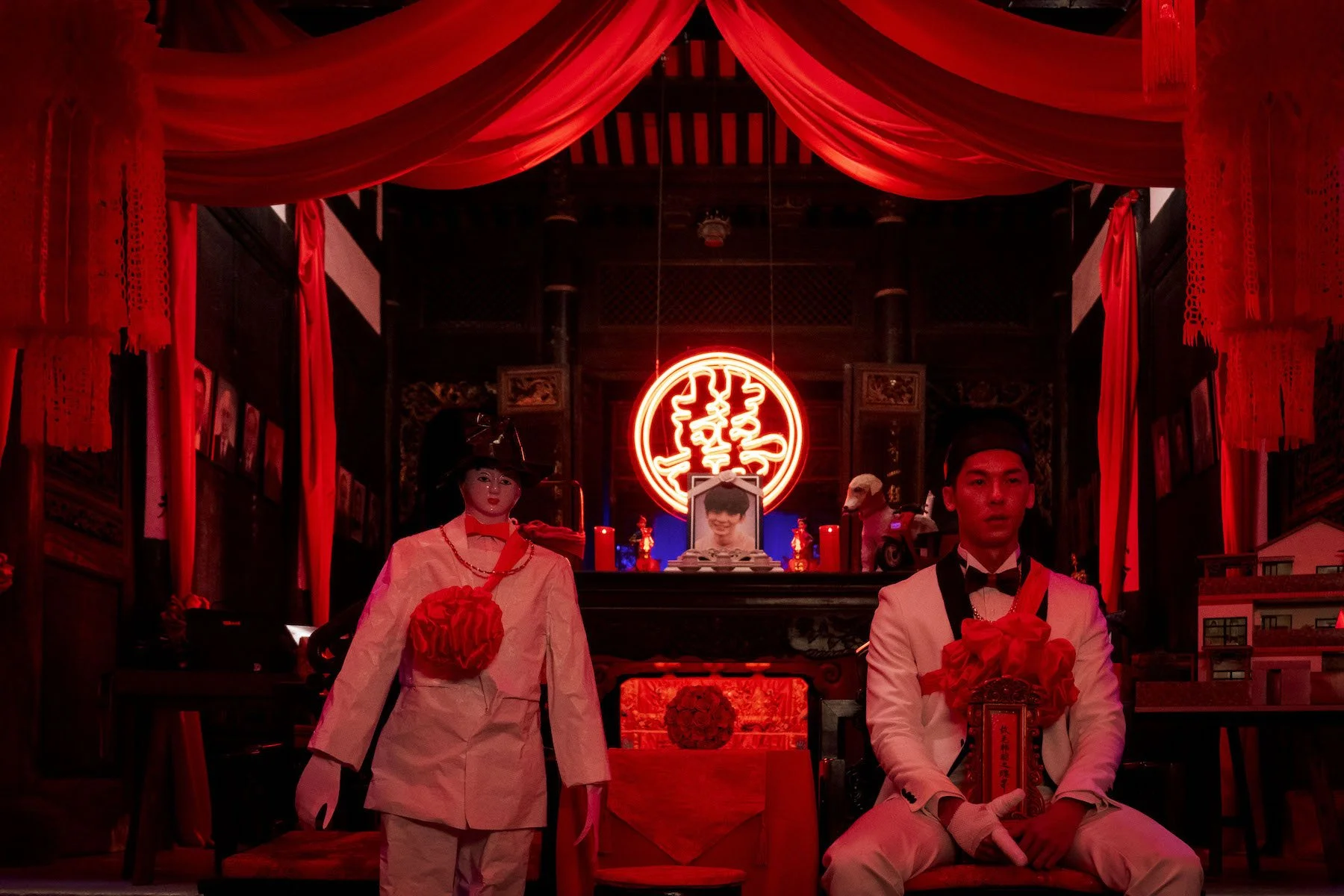Dead or Alive?
Taiwanese director Cheng Wei-hao rides a fine line between progress and retreat in his supernatural action-comedy.
Marry My Dead Body
Director: Cheng Wei-hao • Writers: Wu Chin-jung, Cheng Wei-hao, Wu Yi-chien, Feng Chi-chun, Liao Min-kai
Starring: Greg Hsu, Austin Lin, Gingle Wang, Wang Man-chiao, Tou Tsung-hua, Tsai Chen-nan, Chen Yen-tso, Ma Nien-hsien
Taiwan • 2hrs 9mins
Opens Hong Kong April 27 • IIB
Grade: B-
In his polished new genre mash-up, The Tag-Along director Cheng Wei-hao takes a convoluted, offensive, hilarious, ambitious, boneheaded and well-intentioned path to enlightenment and tolerance for LGBTQ+ rights. I know. Hold on. Marry My Dead Body | 關於我和鬼變成家人的那件事 starts with a homophobic, career-focused cop, Wu Ming-han (Greg Hsu Kuang-han, A Sun), screwing up a drug arrest and getting busted down to sleepy Taipei precinct away from the action. In an attempt to curry favour and get back the big show, he and his partner, Lin Tzu-ching (Till We Meet Again), get into a crazy car chase with a laughing meth-head (he acts like a meth-head), who tosses the evidence they need out his window. While collecting the garbage, Ming-han unknowingly picks up a red packet that binds him in a ghost wedding to Mao Pang-yu, AKA Mao-Mao (Austin Lin Po-hung, My Best Friend’s Breakfast). Sounds like kooky fun.
Cheng mixes bits of Ghost, remaking Mao-mao essentially as the Whoopi Goldberg character who helps the hero find a murderer, almost any ’80s buddy cop movie (48 Hrs., Alien Nation, Turner & Hooch) and Taiwanese folklore to either brilliant or middling effect – either of which depends on your tolerance for LGBTQ+ slurs used as “jokes” and vague slapstick. Regardless of where you come down on the offensive line, MMDB is too long for its modest narrative, and too awkward to truly be satire, but that offensive line is also a sliding scale that audiences could react to in wildly different ways.
After Ming-han reluctantly agrees to be Mao-mao’s groom (bad luck will befall him if he doesn’t) as well as help him reincarnate in the next life, as per the instructions of the Temple Master (Cheng Chih-wei) the hijinks begin, the highlight being the moment Mao-mao teaches Ming-han a lesson by possessing his body and prancing naked through his new neighbourhood (kudos to Hsu for a lively performance). Naturally Mao-mao’s death by hit-and-run is connected to the drug case Ming-han and the shady Tzu-ching are working on, and the gangster they’re after, Lin Hsiao-yuan (Tsai Chen-nan).
But where to begin with all the wrong of MMDB? With a plot predicated almost entirely on gay panic for its forward momentum? With the scads of F-bombs – and we don’t mean “fuck” – that Ming-han throws around? With Chubby (Chen Yen-tso), the simpering, lisping fat cop who supplants his misery with food, and who is the butt of every joke in the station for it? With the hunt for a drug dealer within the gay community, because the gays, they like drugs? With the hunt for a drug dealer among gay men where they gather in large numbers – the gym, of course? Because the gays, they’re always working out. With Mao-mao’s happiness stemming from a cheating boyfriend (played by forced out Fahrenheit boybander Aaron Yan), because the gays, they’re all… You get the idea. These are tired stereotypes that are also hateful and hurtful, and would be best buried alongside the Magical Negro and the Exotic Asian Sex Kitten to name just two.
However. As entirely unfunny as those tropes are (to these eyes), HKIFF audiences were thoroughly amused, as were Taiwanese movie-goers, who’ve made MMDB the country’s biggest hit in years. On top of that Cheng and his quartet of co-writers wear their earnest hearts on their sleeves: the point to all this is Ming-han’s personal growth arc, and his realisation that he’s been a bigoted dick all this time – and a misogynist one too. Tzu-ching is there to highlight lingering gender inequality that needs to be stamped out. The ghost wedding is plotted by Mao-mao’s accepting grandmother (Wang Man-Chiao), not because she’s pissed she didn’t get the familial wedding she wanted, but because she regrets Mao-mao didn’t get to take advantage of new marriage equality laws. Cheng can’t be accused of having nothing on his mind, and his confidence in navigating the form while making it uniquely Taiwanese, and the sprightly dynamic he pulls from Hsu and Lin as the diametrically opposed bros all contribute to steering clear of hot mess territory. The concept is solid, and the clichés are, after all, the buddy cop movie’s lifeblood. In truth it’s hard to fault Marry My Dead Body for its endgame; for its message of tolerance that is most definitely on the right side of history. — DEK



